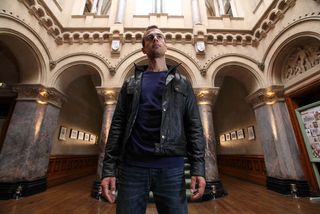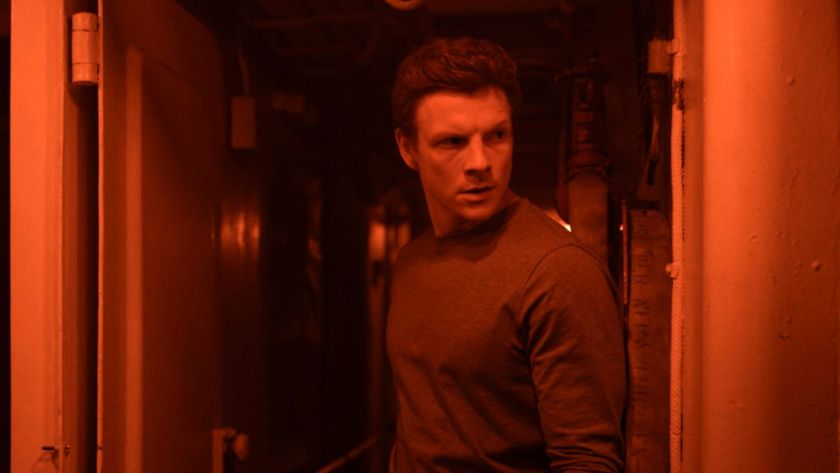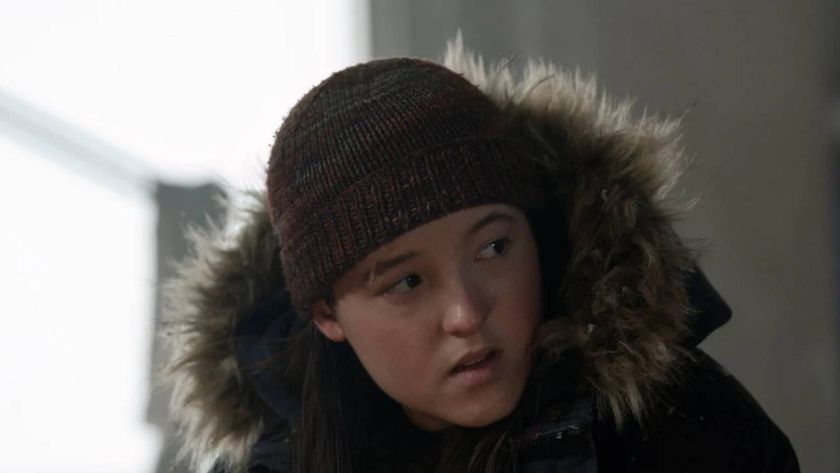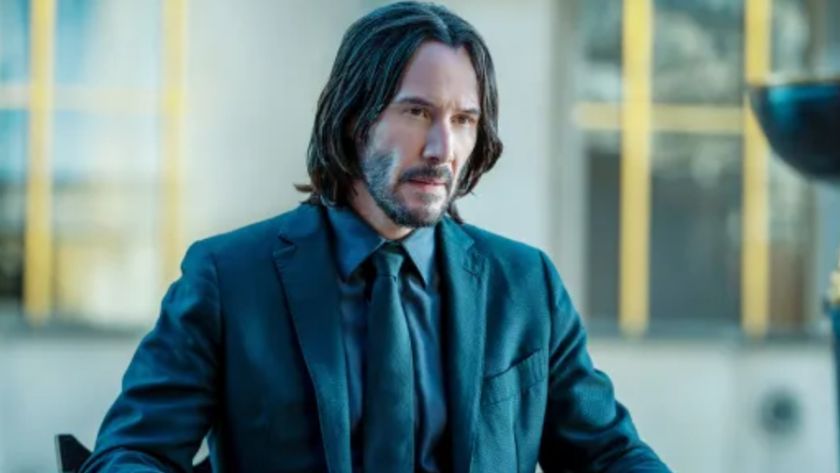Bedlam Creator Interview
None
It’s Sky Living’s first ever drama, and it’s a stylish slice of small screen horror. Co-creator Neil Jones talks exclusively to SFX

Have you caught Bedlam yet? It’s Sky Living’s first ever UK-produced original drama, a spooky supernatural series that tips a wink to US-style genre series while retaining a UK TV sensibility. It’s as much Hammer House of Horror as it is Supernatural . Set in an old asylum that’s been turned into luxury apartments, the series features the old patients coming back to haunt the new tenants. But there’s a lot more going on than that as Jed, the nephew of Bedlam’s dodgy owner, finds out. Because Jed has a spooky talent of his own - he can see ghosts.
It’s four episodes in now, and developing into a very intriguing, highly watchable show, and doing really well for Living. SFX got in touch with one of the show’s three co-creators, Neil Jones, so he could big up the last couple of episodes.
SFX: You are your two co-creators, David Allison and Chris Parker, have a long list of soap opera scripts on your CV (though Alliso did create the body swap comedy drama Boy Meets Girl ). But Bedlam clearly proves you know the genre. Were you always secret SF and fantasy fans?
“I’m an obsessive, really, about horror, science fiction and fantasy. But you find this a lot. When you look at Who writers and stuff, and you look at their CVs, a lot of them haven’t done the kind of stuff that you’d expect them to do. But it doesn’t mean you’re not always developing ideas that never get made. I mean, we’ve been trying to develop Bedlam, which has kind of been like my dream project, for something like six years now. So even though it’s not always reflected in what you see on screen, it doesn’t mean we’re not fans.
“For me, it’s Doctor Who , it’s Twin Peaks , The Prisoner , a lot of the old ’70s stuff. Hammer House of Horror . I’m pretty sure we got a bit of Hammer House of Horror and Tales Of The Unexpected into the mix in Bedlam , you know?
“We also talked about Lost all the time while we were writing Bedlam . Well, me particularly. I think the other two became absolutely sick of hearing me go on about it, I think. And Buffy . And Supernatural . Galactica . All that stuff.”
Sign up to the SFX Newsletter
Get sneak previews, exclusive competitions and details of special events each month!
SFX: Where did the inspiration for Bedlam come from?
“Well, I’m from Liverpool, David’s Leeds and Chris was living in London at the time we came up with the idea. And all three cities – especially the Northern cities really – are in the throes of massive urban renewal, with old building being turned into luxury apartments. And I was looking for really contemporary ways of telling ghost stories within the series, and I just realised it was all around us, really.
“Even though inner cities have benefited from all these developments over the few years, we did feel that maybe we were losing some of their identity, the history of the places. And how many of the people moving into their fancy new flats knew what had gone on in that building? And it was kind of about if you just scratched away at the surface, the history of the city was lurking there just underneath. It wasn’t as easy as glossing over it with fancy wallpaper.”
SFX: There’s a huge backstory going on that’s being revealed as the series progresses. Was that difficult to plot with only six episodes to work with?
“It really focused us on that story arc. We had a much more complicated story arc over the series as we originally planned, which took a lot more time on the screen. Then we realised that over six episodes you can’t tell the kind of story with the impact that Lost can over 20 episodes. So it really made us concentrate on what the main core of that story was about. And also it really focused us again on the idea of we’re telling a story which you can watch and understand in an hour, then there’s this other story running alongside it. We concentrated on the best way to tell that story, the most economical way, over six episodes.
“I think it was good. But, at the same time, we would love it if we were given the opportunity to come back and tell a bigger story over more episodes.”
SFX: So could there be a series two?
“Well, obviously we’re really hoping there will be a series two. It’s too early to say at the moment. It seems to be performing really well in terms of ratings. And we’ve got a plan for series two. In fact, we’re writing episode one of series two at the moment. But it’s not yet greenlit and we’re keeping our fingers crossed.
“But it’s Living’s only, and first-ever British drama, and they’re really keen for it to work. We certainly feel they – and Sky – have been massively supportive of it. We couldn’t complain at all about how much it’s been pushed and how much they’ve promoted it. So, fingers crossed that we come back.”
SFX: Kate is an intriguing character. She’s such a bitch.
“The thing that I thought Charlotte [Salt] did really well with it, is that even though Kate is such a horror in terms of some of the things she does and says, I think Charlotte has found the vulnerability at her core. She’s found the little tiny warm heart in the middle of Kate, and that saves the character. As the series goes, you do start to understand there’s a reason why Kate is the way she is, so you do start to warm to her a little bit more towards the end of the series. That’s not to say she stops her bad behaviour completely.”
SFX: And Theo James seems to have proven to be very popular.
“I’ve had no complaints from any woman I know, whatsoever. Especially the scene when he unnecessarily vaulted over a skip in episode two. There’s been an amazing response to Theo. People love him. We always wanted with Jed that he internalises everything. And that can be difficult for an actor. But I think Theo’s really nailed it. And he’s certainly mastered that ‘What the hell is going on here?’ face that he’s required to do 10 times an episode. I think he’s done a great job.”
SFX: The show, by it’s very nature, has to deal with mental issues. Even Jed has just left an institution. Were you careful not to trivialise this aspect within what is essentially a horror/thriller format?
“Yeah, it was definitely something we were worried about, and we did loads of research and reading on mental health and the history of mental institutions particularly. But the stories aren’t about what happened to the ghosts in many ways. The stories are about the people living there now. We realised that although the element of mental health is essential to the programme, it’s not really about those people.
“We were keen to stress that it’s not the patients who come back as ghosts who are the villains. You increasingly realise across the series that it’s the institution that’s the villain, and the ghosts were the victims of institutionalised abuse. By the end of series one that is very, very explicit. When you look at most of the ghosts’ backstories there is absolutely nothing wrong with them really.
“But the short answer is yes, we did feel a responsibility and I hope we were careful how we handled it.”
SFX: So if people haven’t been watching so far, tell us why they should be sure to tune into the last two episodes.
“Episode five has Ashley Waters as a guest star and he is absolutely amazing. It’s a very dark story and totally amps up the scariness factor. It’s probably the scariest episode of the series. We just watched the finished cut last week and my wife was in tears at the end of it because she was so traumatised by it. Which I think is a good review. It’s really powerful, it really scary, but it’s also really moving. It’s a favourite of mine in the series, that one.
“And episode six takes us into what’s really been going in in the building, what’s been happening to the girls that have gone missing over the years, and it takes us much deeper into the history of Bedlam. And it has a shocking twist.”
Bedlam airs new episodes on Sky Living on Monday evenings at 10pm with repeat viewings on Thursdays at 10.50pm.


Dave is a TV and film journalist who specializes in the science fiction and fantasy genres. He's written books about film posters and post-apocalypses, alongside writing for SFX Magazine for many years.












